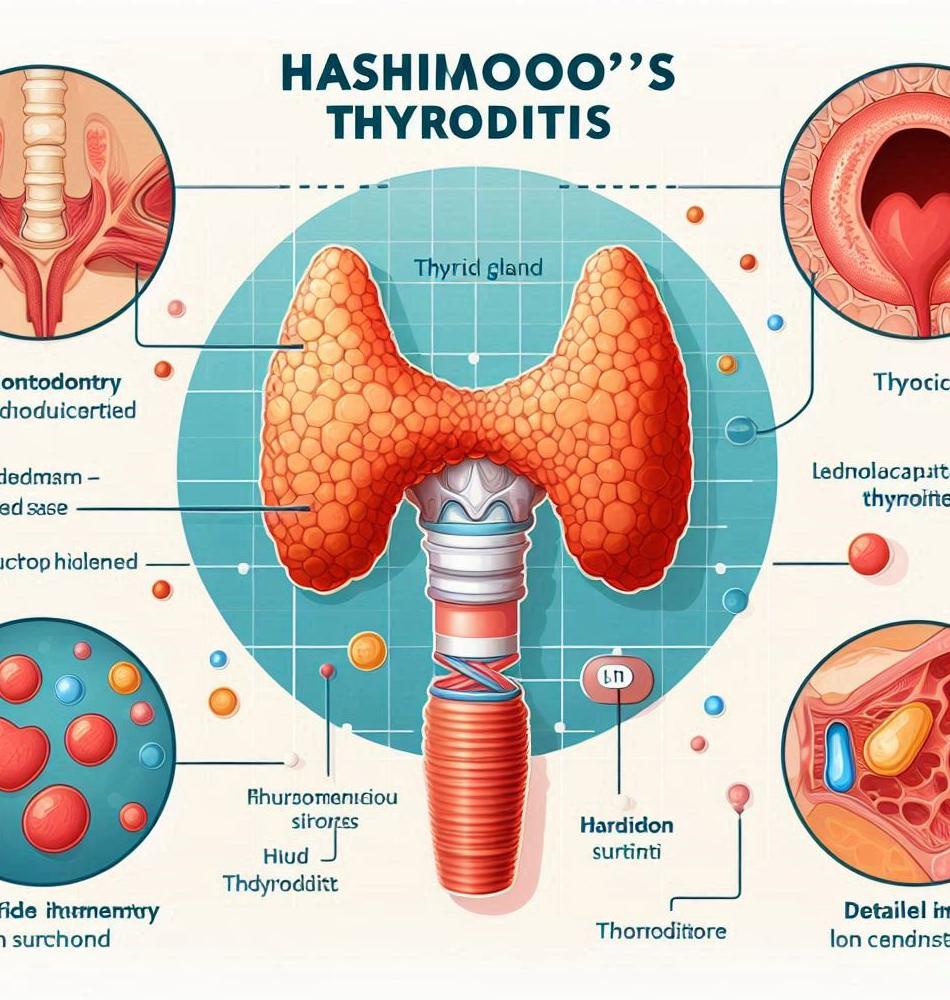Can Hashimoto's Be Reversed? Unraveling the Mystery of Thyroid Health 🦋
Hashimoto's disease, an autoimmune condition that affects the thyroid, often leaves patients questioning their health journey. Can one truly reverse this condition? With rising rates of thyroid disorders, understanding Hashimoto's and exploring its potential for reversal has become essential. In this engaging article, we'll delve into the nature of Hashimoto's, symptoms to watch for, and whether reversing this illness is a plausible goal.
Understanding Hashimoto's Disease 🩺
Before we dive deep into the question of reversal, let's understand what Hashimoto's disease entails. Initially described in the early 20th century, Hashimoto's thyroiditis is an autoimmune disorder where the body's immune system mistakenly attacks the thyroid gland. The disease is characterized by chronic inflammation and reduced production of thyroid hormones.
What Happens to the Thyroid? 🧠
At stake is the thyroid gland's ability to regulate metabolism, energy levels, and overall health. To illustrate:
- Healthy thyroid: Produces sufficient hormones like thyroxine that regulate crucial body functions.- Hashimoto's thyroid: Impaired hormone production leads to potential hypothyroidism, where the body fails to generate the necessary energy to function optimally.With thyroid hormones impacting multiple systems, the implications of Hashimoto's can be wide-ranging.
Symptoms of Hashimoto's Disease 🚨
Recognizing the symptoms of Hashimoto's is crucial for early intervention. The following are common signs that might suggest an issue:
- Fatigue - Unexplained weight gain - Depression - Cold intolerance - Dry skin and hair loss - Muscle weakness - ConstipationIdentifying Symptoms in Women vs. Men ⚧
While Hashimoto's can affect anyone, it predominantly impacts women. Here's a breakdown of symptoms and their prevalence across genders:
- Women often experience more severe fatigue and mood fluctuations due to hormonal changes.- Men may present with more digestive problems and lower energy levels.Pay close attention to these symptoms— they could be indicative of a thyroid issue.
Exploring the Possibility of Reversal 🔄
Now, onto the heart of the matter: can Hashimoto’s be reversed? The path to reversal is complex and multifaceted. Let's explore various perspectives in this regard.
Lifestyle Changes and Their Impact 🌿
To consider reversing Hashimoto's, lifestyle changes play a critical role. Here are some key areas to focus on:
- **Nutrition:** An anti-inflammatory diet rich in vegetables, healthy fats, and proteins can assist in managing symptoms.- **Exercise:** Regular physical activity encourages a healthy metabolism and helps maintain energy levels.- **Stress management:** Techniques such as yoga, meditation, or mindfulness can reduce stress, which may exacerbate symptoms.Nutrition: A Deeper Dive 🍽️
Specific foods can either support thyroid health or exacerbate symptoms. Consider the following:
- Focus on **whole foods** and avoid processed options high in additives.- Emphasize **omega-3 fatty acids** found in fish, flaxseeds, and walnuts.- Limit **gluten and dairy**, which some studies suggest may provoke autoimmune responses.The Role of Supplements 💊
For those with Hashimoto's, certain supplements may be beneficial:
- **Selenium:** May have a protective effect against thyroid autoimmunity.- **Vitamin D:** Low levels may correlate with autoimmune diseases.- **Zinc and Magnesium:** Essential for immune function and overall health.Does Medication Help? 💊
While lifestyle changes are crucial, medication often plays a significant role in managing Hashimoto's. Some remedies include:
- **Thyroid hormone replacement:** Levothyroxine is typically prescribed to help restore normal hormone levels.- **Autoimmune-specific medications:** In select cases, treating the autoimmune aspect may lead to improvements.Complementary Therapies 🌈
Some patients find that additional therapies effectively complement traditional medicine:
- **Acupuncture:** May assist in balancing hormones and alleviating stress.- **Chiropractic adjustments:** Focus on overall wellness and may help support bodily functions.Frequently Asked Questions ❓
- Can Hashimoto's disease be cured?- Are there specific diets that help with Hashimoto’s?- How do I know if my thyroid medication is working?- What are the long-term implications of untreated Hashimoto's?As you ponder these questions, know you are not alone in your journey toward better health.
Stories of Reversal: Real-Life Experiences 🔎
Many individuals have shared their accounts of managing symptoms and achieving improved health. Case studies and testimonials reveal various outcomes, demonstrating the potential of lifestyle adaptions and medical interventions.
Case Study 1: Positive Lifestyle Changes 🎉
One patient, who previously struggled with severe fatigue and depression, adopted an anti-inflammatory diet and committed to a consistent exercise regimen. Through a combination of medication and lifestyle changes, they successfully improved their energy levels and relocated to a more supportive community, drastically boosting their overall well-being.
Case Study 2: Supplements and Improvement 🌟
Another individual focused heavily on optimizing their nutrient intake, adding selenium and vitamin D to their daily regimen. With a diet aligned to their health needs, they noticed a marked improvement in their symptoms over several months. Regular check-ups confirmed better thyroid function alongside a supportive medical team.
Conclusion: The Path Forward for Hashimoto’s Patients 🛤️
The complexity of Hashimoto's disease intertwines medical, nutritional, and lifestyle elements. While reversing the condition may not be universally achievable, many individuals have made significant strides by adopting proactive strategies. Ultimately, the potential for improvement should inspire patients to take charge of their health journey.
As research continues to unfold, the conversations surrounding Hashimoto's will evolve. Stay informed, seek support, and embrace the journey toward optimal health. Whether through lifestyle changes, medication, or a blend of both, the path is uniquely yours to navigate.
.png)





